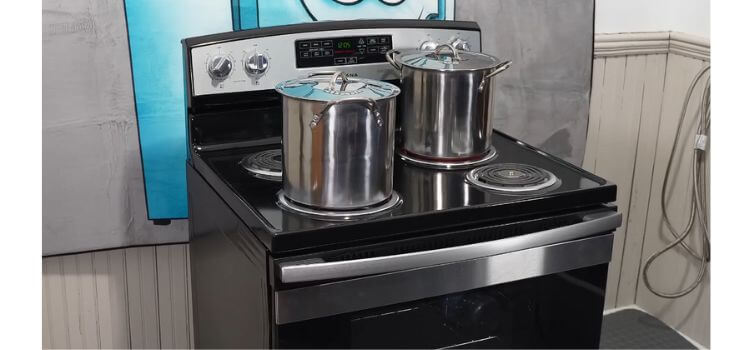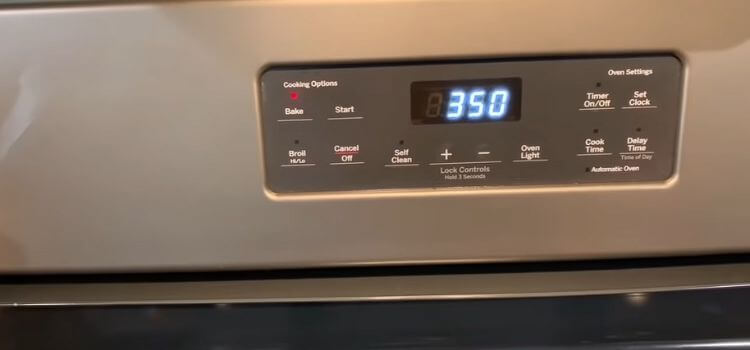A gas stove can explode due to a gas leak or a buildup of flammable gas. Faulty connections or damaged components can also cause explosions.
Gas stoves are common in many households due to their efficiency and control over cooking temperatures. However, they come with certain risks if not properly maintained. Explosions are rare but can be catastrophic. Understanding what causes a gas stove to explode is crucial for safety.
Leaks, faulty connections, or damaged components are the primary culprits. Regular maintenance, prompt repairs, and vigilance are key to preventing these hazards.
By ensuring that your gas stove is in good working condition, you can enjoy its benefits while minimizing risks. If you have any concerns, always get expert advice.
The Ignition Of A Household Hazard
Gas stoves are common in many homes. They offer quick and controllable heat. But they can also be dangerous. An explosion is a rare but serious risk. Understanding the causes can help keep you safe.
Gas Stoves: A Primer
Gas stoves operate by burning a combination of propane and natural gas. This gas flows through a pipe to the burner. When you turn on the stove, gas mixes with air. An ignition source, like a spark, lights the gas. The flame heats your pots and pans.
Natural gas is lighter than air. It can quickly fill a room if there’s a leak. Propane gas is heavier. It can pool in low areas, like basements. Both gases are highly flammable.
Explosion Basics: How And Why
Explosions happen when gas mixes with air in a confined space. A small spark or flame can ignite the gas. This causes a rapid expansion of gases, creating a powerful blast.
Here are some common causes of gas stove explosions:
- Gas Leaks: Faulty pipes or connections can leak gas.
- Faulty Ignition: A delayed ignition can cause gas buildup.
- Poor Ventilation: Gas can accumulate in poorly ventilated areas.
- User Error: Leaving the gas on without igniting it.
Preventing Explosions involves regular maintenance and awareness. Check for leaks often. Ensure proper ventilation. Always ignite the burner immediately after turning on the gas.
| Cause | Prevention |
|---|---|
| Gas Leaks | Check pipes and connections regularly. |
| Faulty Ignition | Ensure the ignition system works well. |
| Poor Ventilation | Keep the kitchen well-ventilated. |
| User Error | Always ignite the burner right away. |
Knowing the risks can help you stay safe. Regular checks and proper use are key. Always be aware of any gas smell. Safety comes first in every kitchen.
Key Factors Behind Gas Stove Explosions
Understanding why gas stoves explode is crucial for safety. Several factors contribute to these dangerous events.
Leakages: The Silent Threat
Gas leakages are a common cause of stove explosions. These leaks often go unnoticed until it’s too late.
Here are some potential sources of gas leakages:
- Faulty connections
- Worn-out hoses
- Damaged gas pipes
Detecting a gas leak early can prevent disasters. Use a gas detector or pay attention to the smell of gas.
Ignition Sources: Sparks And Flames
Ignition sources can trigger an explosion if gas is leaking. Common ignition sources include:
- Open flames
- Electrical sparks
- Static electricity
Keep all ignition sources away from your gas stove. Ensure your stove is well-maintained and inspected regularly.
Common Leak Culprits
Understanding the common leak culprits behind gas stove explosions can save lives. Knowing what to check can prevent accidents. Here, we delve into two key areas: hose integrity and connections and valves and regulators.
Hose Integrity And Connections
The hose is a critical part of your gas stove. It carries gas from the supply to the stove. Leaks may occur from a compromised hose.
- Cracks and Wear: Over time, hoses can develop cracks.
- Improper Installation: Incorrectly fitted hoses may leak.
- Loose Connections: Make sure every connection is strong and safe.
Regular inspections can catch these issues early. Replace damaged hoses immediately.
Valves And Regulators: Hidden Weaknesses
Valves and regulators control gas flow. Hidden weaknesses in these components can be dangerous.
| Component | Potential Issue |
|---|---|
| Valves | May get stuck or fail to close completely. |
| Regulators | Can wear out and malfunction over time. |
Check valves and regulators periodically. Replace any faulty parts to ensure safety.
These common leak culprits are often overlooked. Regular maintenance can help prevent dangerous situations.
The Role Of Maintenance In Prevention
Proper maintenance can prevent gas stove explosions. Routine checks and professional inspections are essential. They ensure your gas stove works safely. Let’s explore how maintenance helps.
Routine Checks: A Necessity
Routine checks are vital for gas stove safety. They help spot early issues.
- Check for gas leaks: Use soapy water to find leaks.
- Inspect burners: Ensure burners are clean and unclogged.
- Check gas lines: Look for cracks or damage.
- Test igniters: Ensure they spark properly.
These checks are simple but crucial. They can prevent dangerous situations.
Professional Inspections: When And Why
Professional inspections are also important. Experts can find hidden issues.
When to call a professional:
- when you notice a gas leak but you cannot locate it.
- If the flame is yellow instead of blue.
- If the stove makes unusual noises.
- If the stove is old or has not been inspected in a year.
Emergency Response: What To Do Post-explosion
A gas stove explosion is terrifying. Knowing what to do next can save lives. This section will guide you on immediate and long-term steps post-explosion.
Immediate Steps To Ensure Safety
First, check yourself and others for injuries. Call emergency services immediately. Evacuate the area quickly and safely. Avoid using electrical devices or switches.
Once outside, stay at a safe distance. Inform neighbors about the explosion. Hold off until emergency personnel arrive to take care of the situation.
Long-term Recovery And Repair
After the initial crisis, focus on recovery and repair. Contact your insurance company to report the incident. They will help you on what to do next.
Hire professionals to inspect and repair the damage. Ensure the gas supply is safely restored. Replace the faulty gas stove with a new, safer model.
Lastly, consider scheduling regular maintenance checks. This can prevent future accidents and ensure your home remains safe.
Preventive Measures To Consider
Preventing gas stove explosions involves several crucial steps. By taking these measures, you can ensure your home remains safe. Here are some important factors to think about.
Choosing The Right Gas Detector
A gas detector is essential for safety. It detects gas leaks early. Choose a gas detector that suits your needs.
- Opt for a detector with a loud alarm
- Select one with a long battery life
- Ensure it is certified by safety standards
Installation Tips For Safety
Proper installation of your gas stove is vital. Follow these tips for safe installation:
- Hire a licensed professional for installation
- Ensure proper ventilation in the kitchen
- Use flexible gas lines with secure connections
Avoid placing the stove near flammable materials.
Legal And Insurance Considerations
Understanding the legal and insurance aspects of gas stove explosions is vital. Being aware of your rights and obligations could make difficult situations easier for you to handle. This section explores liability and insurance claims related to gas stove explosions.
Liability In Gas Stove Explosions
Determining liability in a gas stove explosion can be complex. Multiple parties could be responsible:
- Manufacturer: If the stove had a design or manufacturing defect.
- Installer: If the stove was improperly installed.
- Landlord: If maintenance was neglected in a rental property.
Each of these parties might have some level of responsibility. Consulting a lawyer can help determine who is liable. Proper documentation and evidence will support your claim.
Insurance Claims: Navigating The Process
Filing an insurance claim after a gas stove explosion involves several steps. Here is a simplified process:
- Report the Incident: Inform your insurance company immediately.
- Document the Damage: Capture images and videos of the impacted location.
- Gather Evidence: Collect receipts, warranties, and maintenance records.
- File a Claim: Submit all necessary documents and forms.
- Follow Up: Keep track of your claim’s status and communicate with the insurance adjuster.
Being thorough and organized can speed up your claim process. Make sure you know the coverage limitations of your policy.
Legal and insurance considerations are crucial in dealing with gas stove explosions. Properly addressing these aspects can help you manage the aftermath effectively.
Technological Innovations For Safer Kitchens
Gas stoves can sometimes be dangerous. But new technologies make them safer. These innovations help prevent explosions and other accidents.
Smart Gas Stoves: A New Era
Smart gas stoves are changing kitchens. They use sensors and alarms to detect problems. These features help keep you safe.
- Automatic Shut-Off: The stove turns off if it detects a leak.
- Temperature Control: The stove keeps the heat at a safe level.
- Remote Monitoring: You can check your stove from your phone.
Future Safety Features In Development
New safety features are being developed. These will make gas stoves even safer.
| Feature | Description |
|---|---|
| AI Detection | AI can detect gas leaks faster. |
| Voice Alerts | The stove can warn you with a voice alert. |
| Enhanced Sensors | Better sensors can detect even small leaks. |
These innovations promise to make kitchens safer for everyone.
Frequently Asked Questions
What Are Common Causes Of Gas Stove Explosions?
Gas stove explosions often occur due to gas leaks, faulty connections, or defective components. Improper installation can also lead to dangerous situations. Regular maintenance is crucial.
Can A Gas Stove Explode If Left On?
Yes, a gas stove can explode if left on. Unattended cooking can lead to gas buildup, which may ignite. Always monitor your stove.
How Can I Prevent Gas Stove Explosions?
To prevent gas stove explosions, ensure proper installation and regular maintenance. Check for gas leaks frequently. Use appliances as instructed.
Are Older Gas Stoves More Likely To Explode?
Older gas stoves can be more prone to explosions due to wear and tear. Regular inspections and timely repairs reduce risks.
Conclusion
Understanding the causes of a gas stove explosion is crucial for safety. Regular maintenance can prevent accidents. Always check for gas leaks and ensure proper ventilation. Teach your family members the importance of gas safety. By following these precautions, you can enjoy the convenience of a gas stove without worries.

